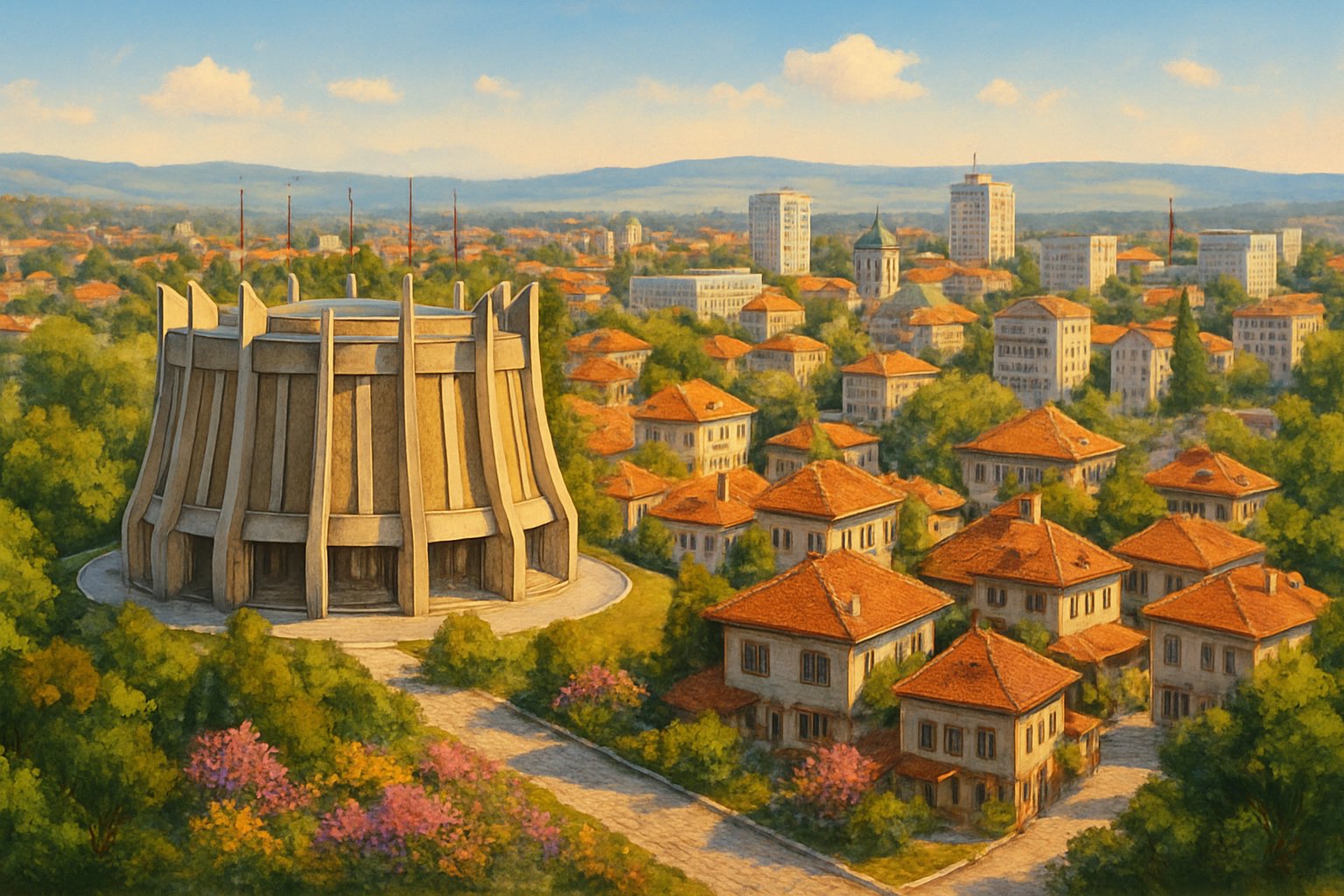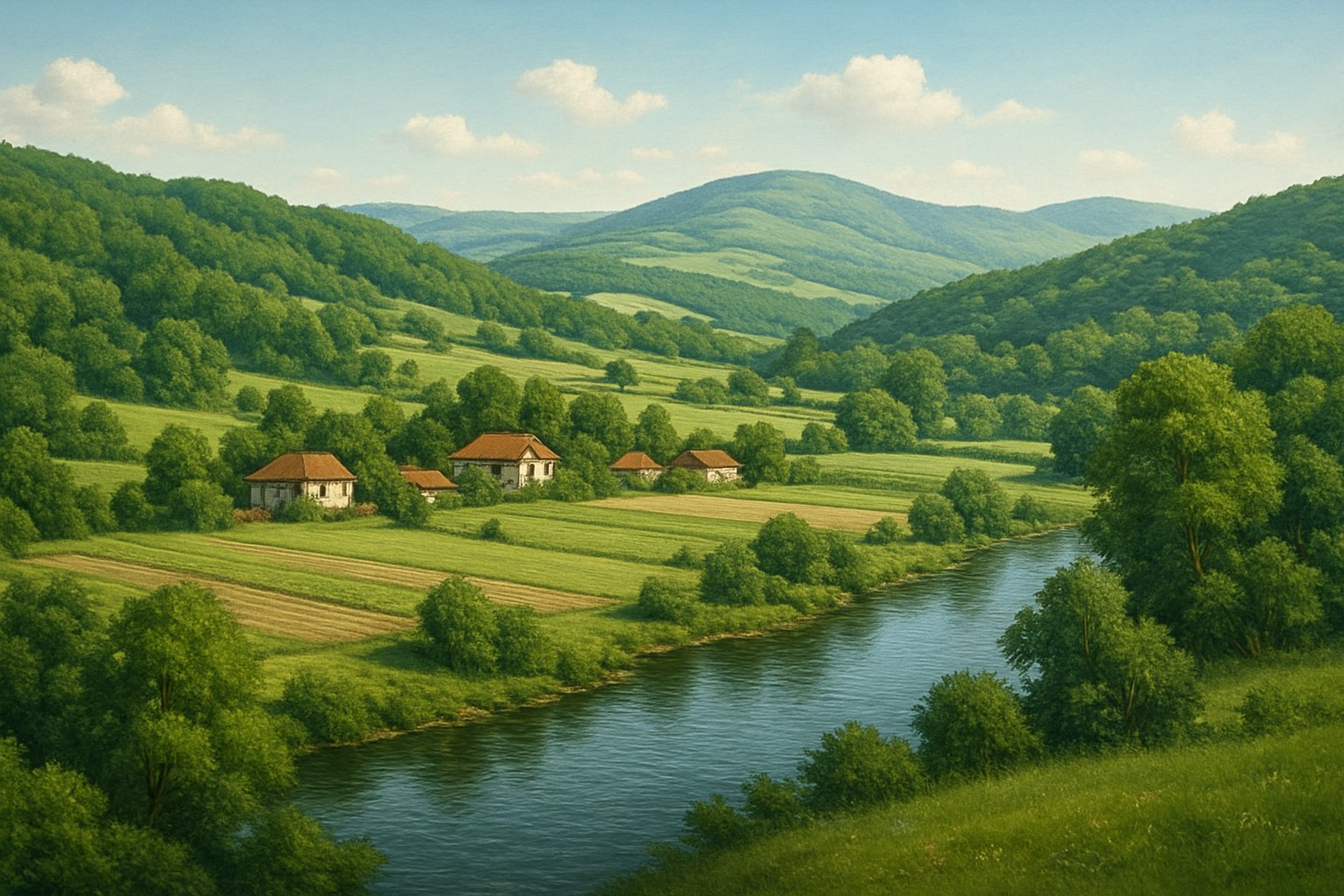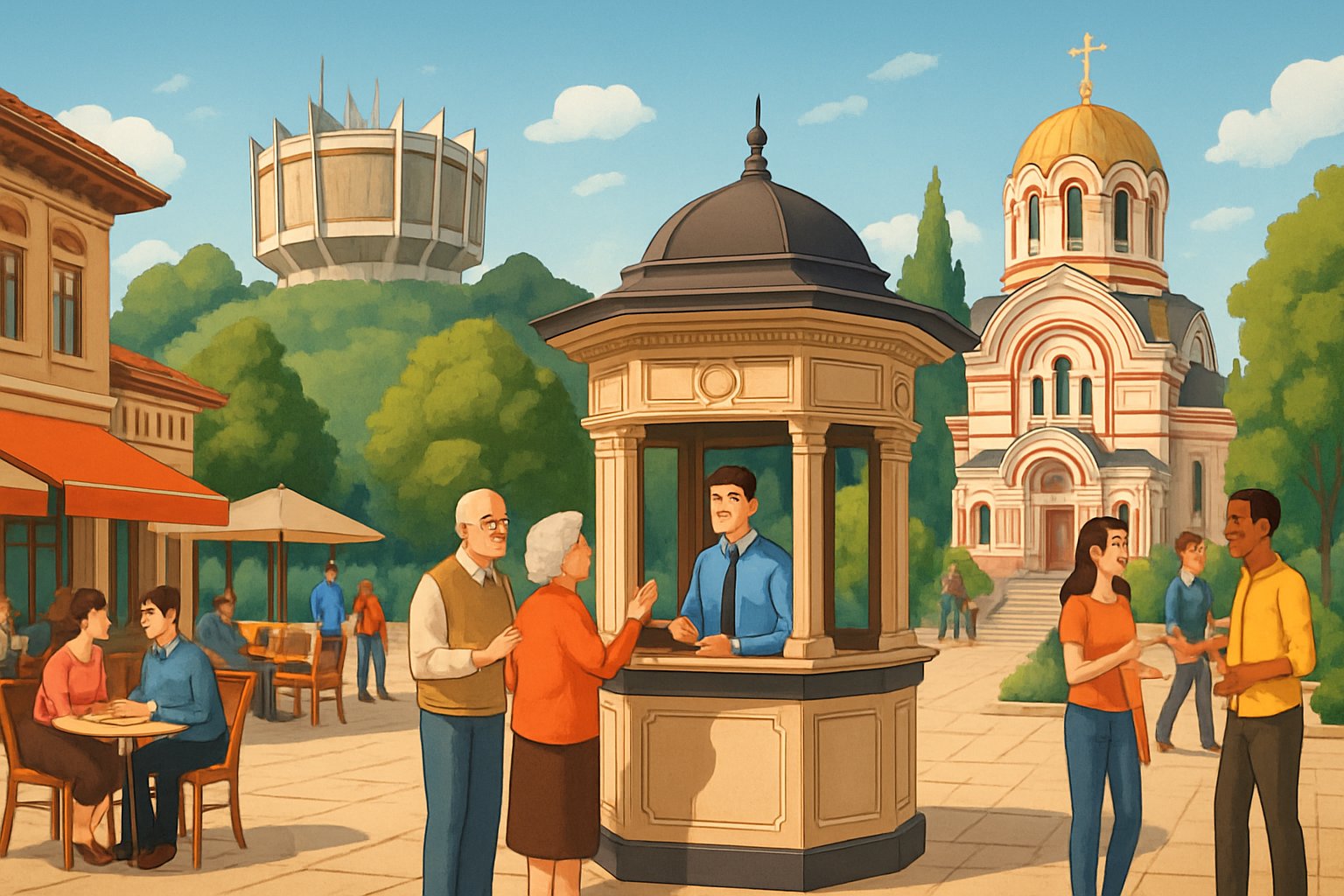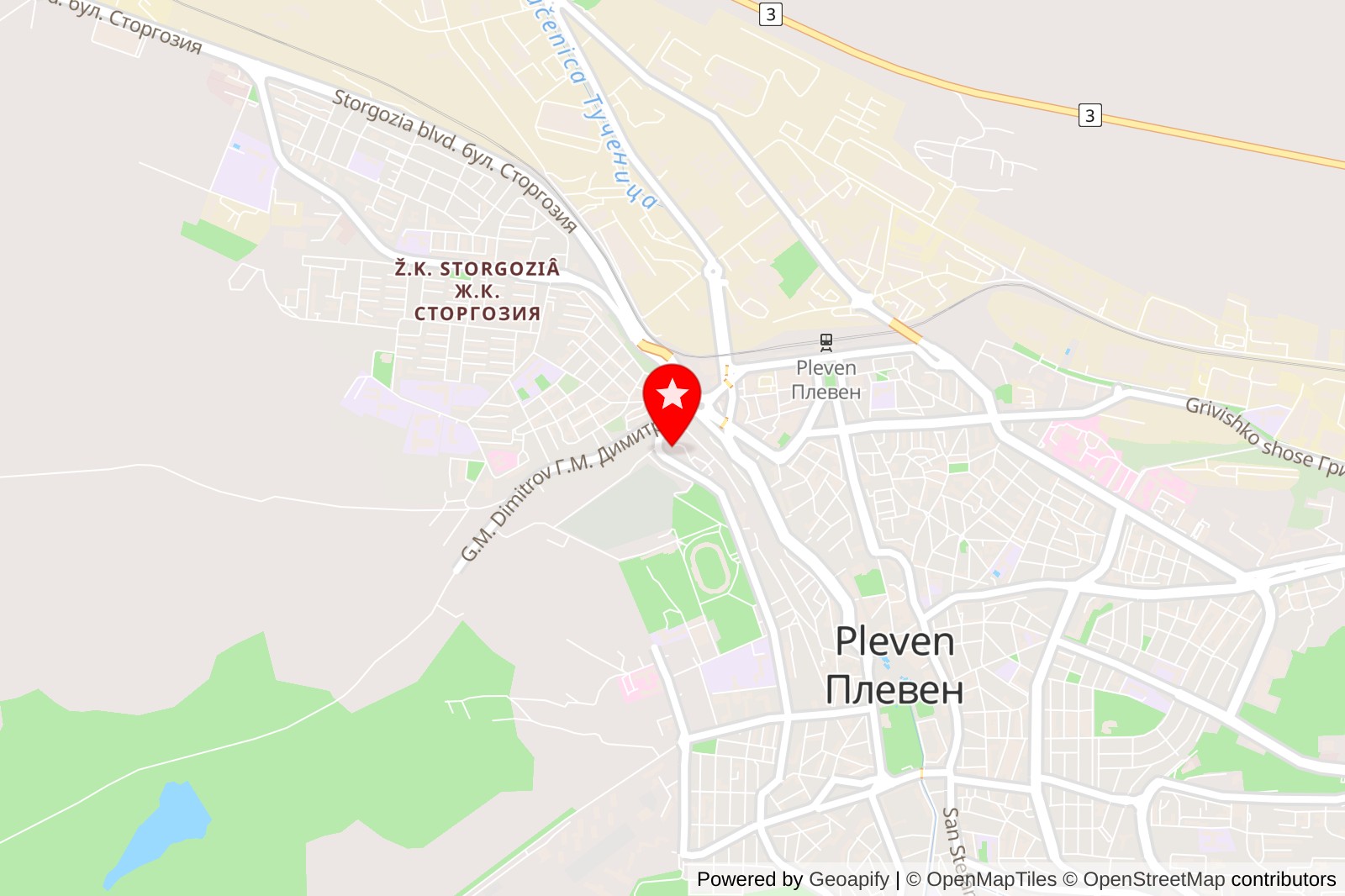Pleven is one of Bulgaria’s most fascinating cities, offering a surprising blend of old-world history and modern energy. Up in the north, this seventh most populous city in Bulgaria stands out as an economic and cultural hub that’s been shaping the country’s story for centuries.

Let’s dig into Pleven’s pivotal role in history, its gorgeous parks, and the cultural highlights that make it so worth a visit. Whether you’re drawn to the famous Battle of Pleven or just want to wander through a city with beautiful geography, this guide might convince you to add Pleven to your Bulgarian travel plans.
1) Pleven
Pleven greets you with a unique mix of history and modern life. It’s a pretty great example of how Bulgarian cities balance their deep roots with the realities of today.
The city is a regional center up north. We noticed how organized the local government feels—lots of services, both online and in-person, for anyone who needs them.
Walking around, you’ll spot signs of a city that cares about its people. From tax help to childcare, the local administration covers a lot for families and newcomers.
We found the city pretty accessible for visitors. The official website has plenty of info about city services, though, fair warning, most of it’s in Bulgarian.
Location: Pleven, Bulgaria
Website: Visit Website
History and Cultural Heritage
Pleven’s story stretches back thousands of years, from Bronze Age settlements to its dramatic role in Bulgaria’s liberation from Ottoman rule. The city’s historical significance and its landmarks make it a fascinating place to dig into the past.
Key Historical Events
People first settled here way back in the Bronze Era, around 5 BC. Archaeologists found treasures like the Valchi Trun in 1924, showing just how deep Pleven’s roots go. Early civilization left its mark all over the region.
The Russo-Turkish War of 1877-1878 stands out as Pleven’s most defining moment. This conflict really put Pleven on the map as a key town of central northern Bulgaria.
After the war, Pleven changed fast—more people, more jobs, and it started to blossom as a cultural center of the region.
You can see how these events shaped Pleven into Bulgaria’s seventh-largest municipality. The Vit River running through town made it a strategic spot across different eras.
Architecture and Landmarks
The Memorial Complex St. George the Victorious is probably Pleven’s most famous site. This impressive monument honors the soldiers who fought in the Russo-Turkish War.
It’s more than just a monument—it’s a symbol of bravery and sacrifice. You’ll find plenty of museums and memorials here, each with its own story.
Some of Pleven’s biggest archaeological finds, like the Valchi Trun, ended up in Sofia’s National Museum of History. But you’ll spot traces of Pleven’s long past all over the city.
The architecture tells its own story, mixing historic charm with modern life. Pleven manages to blend the old and new in a way that feels pretty authentic.
Natural Environment and Geography

Pleven sits up in Bulgaria’s north, right in the Danubian Plain, surrounded by limestone hills. The seasons are pretty distinct here—winters can get down to -15°C, summers reach 35-40°C.
The city’s green spaces, like Kaylaka Park, offer a nice break from the urban buzz.
Local Parks and Green Spaces
Kaylaka Park is Pleven’s biggest natural draw, covering more than 2,000 acres. You can wander through shady woods, chill by lakes, or spot local wildlife.
Nature lovers and hikers will find plenty to do here. It’s a spot for a picnic, a hike, or just some quiet time outdoors.
Not far from Pleven, three lakes near Dolni Dupnik (about 15 km to the west) offer water sports, fishing, and a bit of adventure if you’re up for it.
Climate Overview
Pleven gets a temperate continental climate, which means you’ll notice those swings between hot summers and cold winters.
This climate makes the area great for agriculture and outdoor activities. Each season brings a different vibe.
Pleven’s spot in the Danubian Plain is surrounded by the low limestone Pleven Heights, which gives the city its unique landscape.
Frequently Asked Questions

Here are some answers to common questions about Pleven, covering its historic sites, culture, and practical travel tips.
What are the top attractions to visit in Pleven?
The Pleven Panorama is the city’s must-see spot. It’s a massive circular painting that brings the 1877-78 Battle of Pleven to life—super immersive, honestly.
We also suggest checking out the city’s parks, which offer a nice contrast to the history-heavy sites. The panorama museum really ties together art, history, and local pride.
How does the population of Pleven compare to other cities in Bulgaria?
Pleven holds its own as a regional center—definitely not tiny, but not Sofia-sized either. It’s a key administrative and educational hub up north.
With three universities, including the Medical University, the city attracts students from across Bulgaria and abroad. That gives Pleven a pretty lively, youthful energy.
What are some significant historical events that took place in Pleven?
The Siege of Pleven during the Russo-Turkish War of 1877-78 is the big one. This crucial battle led to Bulgaria’s liberation and changed the country’s future.
They commemorate the battle with the impressive Pleven Panorama painting. History buffs will find plenty to dive into here.
What are the safety considerations when visiting Pleven?
Pleven feels about as safe as other Bulgarian cities its size. Just use common sense and standard travel precautions, especially if you’re wandering at night.
The university scene, especially with the Medical University bringing in international students, helps create a pretty welcoming vibe. Tourist areas around the panorama and parks are well-kept and usually feel safe.
Can you recommend any cultural experiences to have in Pleven?
Definitely try out the local culture—it’s a cool blend of tradition and modern Bulgarian life. Sample some traditional food, and don’t skip the historical sights.
The Pleven Panorama is a highlight for art, history, and education all rolled into one. If you have time, wander through the university district and soak up the student energy.
What are the common religious practices in Pleven?
Pleven leans into the same religious traditions you’ll find across Bulgaria. Eastern Orthodox Christianity stands as the main faith here.
The city’s churches really show off this Bulgarian Orthodox vibe. You can spot it in their architecture and the way locals gather for services.
People in Pleven celebrate the big Orthodox holidays—think Easter, Christmas, and a handful of saints’ days. Locals keep these traditions alive, and you’ll notice it especially during festive seasons.
If you wander into a church or catch a holiday event, you’ll see these practices firsthand. There’s something special about witnessing it all in person.

